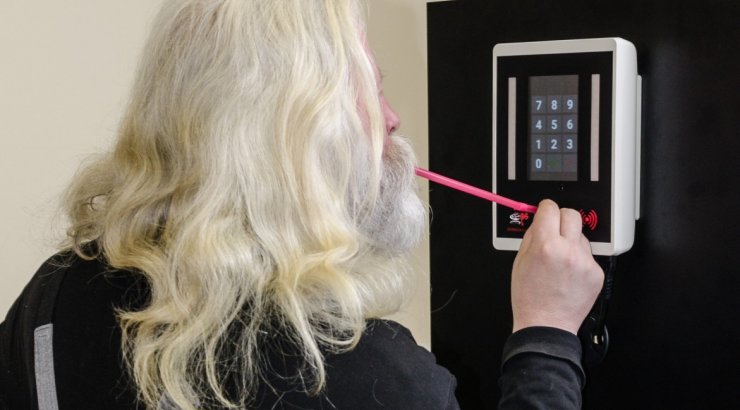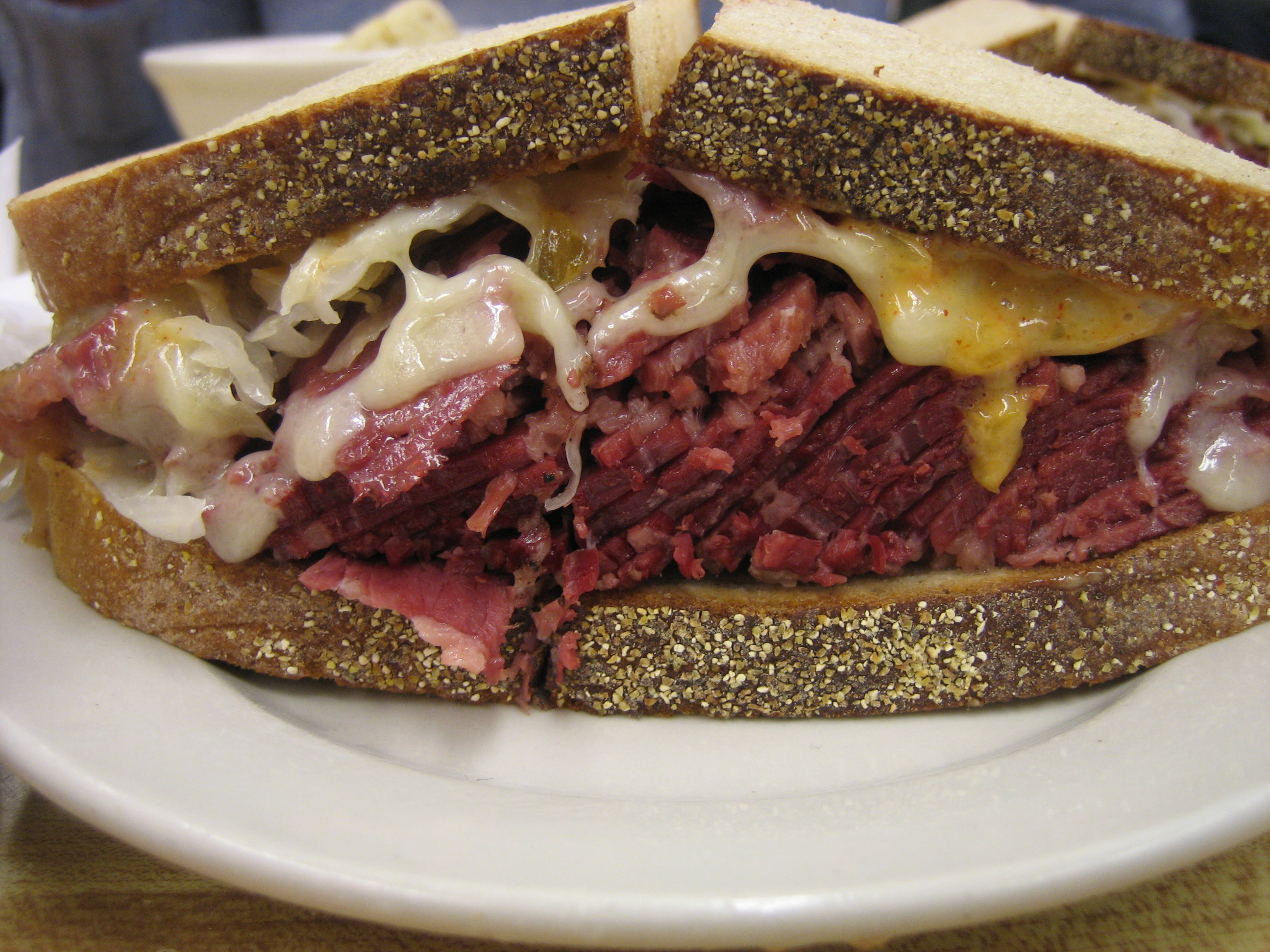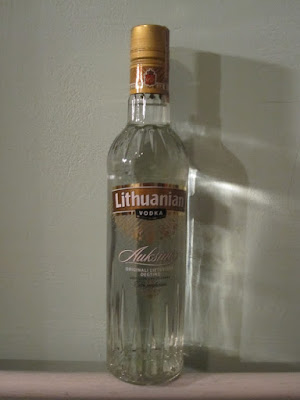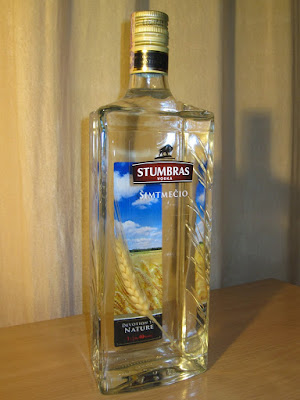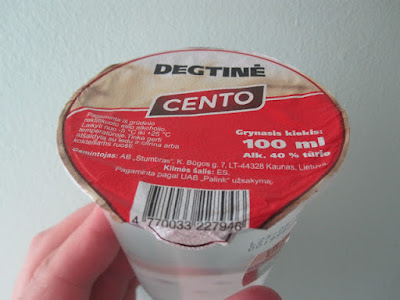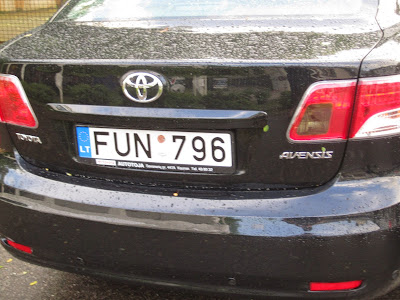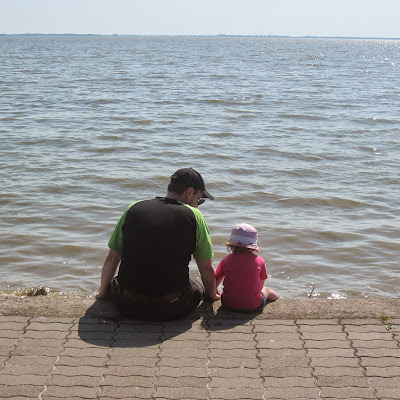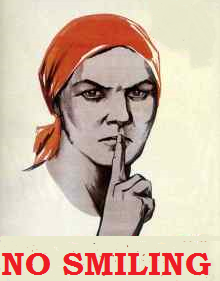 |
| ...we are serious people here. Life is not a joke |
When visiting, you will soon notice that smiling Lithuanians seem to be about as rare as unicorns. This fact is one of the bigger and unaddressed issues in Lithuania, since many Lithuanians think it is some kind of "fake news". They do smile, they just don`t do so very often. Who the first Lithuanian was to stop smiling in public is not known, but somehow it caught on. Lithuanians in public often seem to practice some kind of full-face version of the British stiff upper lip. They are not officially amused.
 |
| An artists impression of how this glorious tradition came into existence |
Everybody look like they are on their way to, or just came back from, a funeral. The whole country seems to be in some kind of mourning. Not so much over a good friend, but rather some aquaintence whose death at least requires a serious face. And not only that, but a funeral that they in some part blame YOU for. And this is normal. It takes some getting used to, but that stage will eventually pass. And when it does, you will see that this is acutally not a bad way to live. You ignore the others, and they ignore you - untill someone chooses not to.
 |
Christopher Columbus - perhaps the most famous Lithuanian to date.
And as you can see - even he knew how ko keep a straight face
|
So in other words - if you are a big fan of non-verbal communication, Lithuania is perhaps not the ideal holiday destination for you. It can at the very least leave you a bit confused. In the eyes of a westerner, everybody seems to communicate a kind of "fuck you" message. Even shop attendants and others that we commonly expect to try to be as helpful and forthcoming as possible. There is however no reason to be alarmed. This attitude is ferfectly common, and it is not necessarily YOU that are doing something wrong.
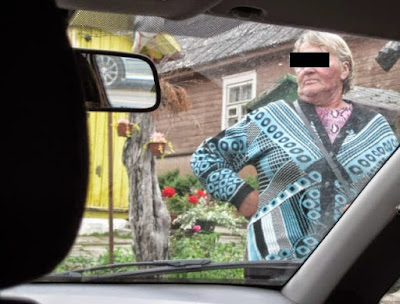 |
This gentle, old woman might come accross as a bit reserved,
from a western perspective. But that may not be the case at all
|
I first suspected that this was some kind of collective public mourning, like when those Irish riverdancers started dancing with their arms straight down to commemorate the victims of the potatoe famine. Who knows, Lithuania is a significant potato producer, perhaps they were also affected by this dramatic agricultural incident?
 |
Lithuanian version of Mona Lisa. What is she hiding behind that mysterrious smile?
|
Other theories included deliberately avoiding stimulation of the blood flow to the face to avoid heat loss during the cold winters, or that they were concerned with avoiding wrinkles. Both theories seemed feasable, but when it comes down to it - Lithuanian winters are not really that cold (and besides, just look at the eskimos - they seem to be smiling all the time) and even though Lithuanian women are rather preoccupied with their appearence, I doubt they have sacreficed such an alluring weapon of attraction as the smile purely on the alter of beauty.
 |
The president of Lithuania - not moving a single facial muscle
A smiling president would of course be unthinkable
|
Some say the lack of smiles relate to a fear of not being taken seriously, while others explain it with some kind of heritage from soviet times. The possible explanations are many, but not conclusive. A more fruitful deductive approach might therefore be found in analyzing the groups of people that WILL smile at you in public in Lithuania, and look for a pattern. These groups include:
 |
| Drunkards, obviously |
1. Drunk people
2. Crazy people. There are not many of those roaming the streets, but they can be found
3. Crazy drunk people.For some reason this seems to be a popular cobination world wide
4. Foreigners. Usually people who have just arrived, like tourists
5. Gay people. The open kind that is, of which there are not that many.
6. Retarded people. They don`t know any better
7. Drunk and crazy retarded gay foreigners. A group mainly created by assumption, but you may also be assumed to be part of that group if you go around grinning recklessly in Lithuania
8. Friends and family. This is the part that can be difficult for a visiting tourist to see, because he usually has neither when he first arrives. And because of this - NOBODY WILL SMILE TO YOU! After all, people don`t want to be taken for crazy drunk retarded foreigners, do they? They are serious, proper people.
So in other Words - the smiling situation in Lithuania will just have to be accepted "as is". This is just how they distinguish serious people from the outcasts. And if we look on the bright side: Are you feeling bad about yourself because you are not happy like everybody else? Do you feel pressured into constantly showing the world how happy you are? - Then Lithuania might just be the holliday destination for you. But be careful that you don`t enjoy it so much that it makes you smile.
 |
When Lithuanians DO smile, it allegedly happens in situations such as this one:
Alone in the field, while gently fondling the grain
|
Does this article make you concerned about the future of this misunderstood People? Not to worry! Fake american smiles will arrive with time, just as sure as western sugarlazed snacks and fast food are sure to eventually fatten the asses of the so far rather skinny Lithuanians. Just as they have done in any other liberated country to date.













